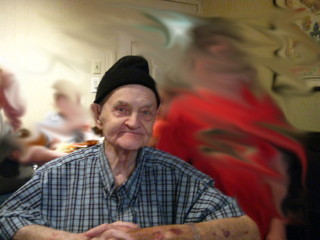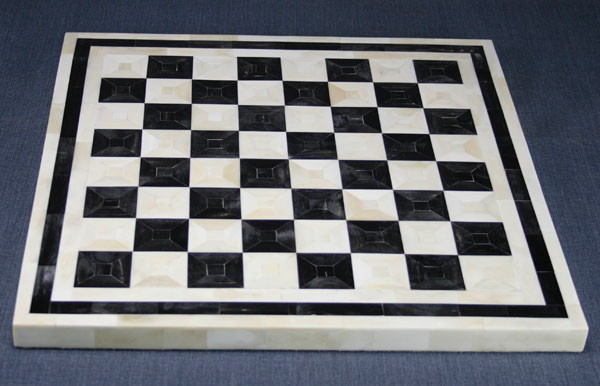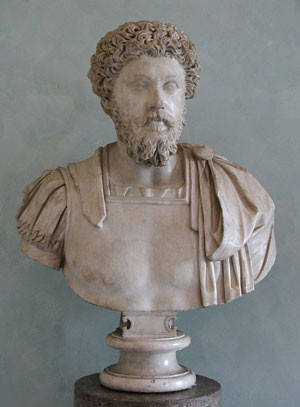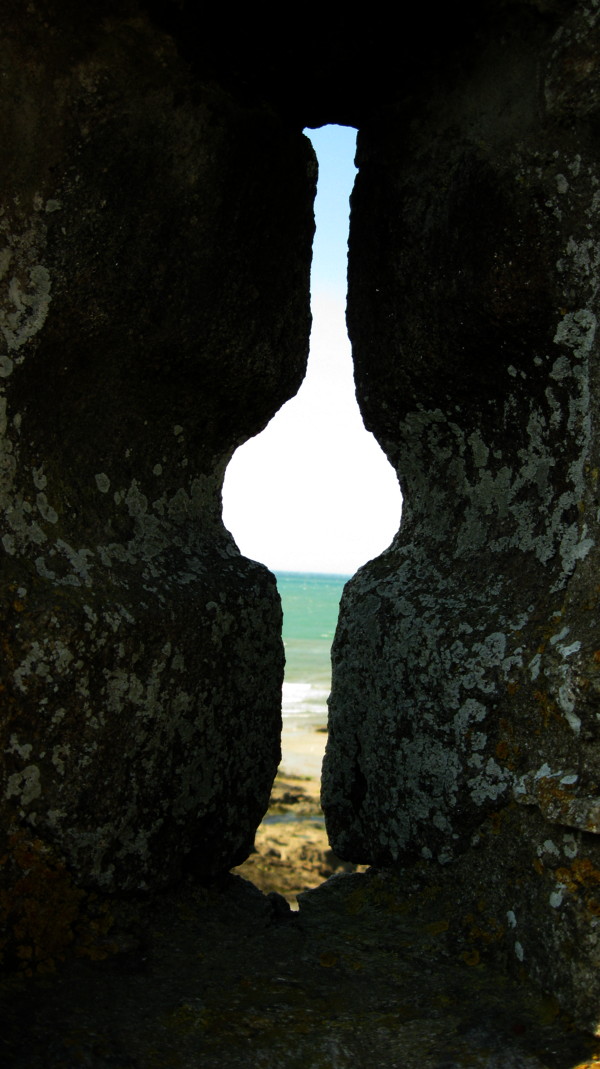November 2010
This Month's Contents: Discernment by Tess Hughes| The Chess Board: Is It Black or White? by Alfred R. Pulyan | Six excerpts from Meditations by Marcus Aurelius | Life With A Hole In It: That's How The Light Gets In, by Vicki Woodyard book review by Paul Constant | A Poem by James B. Rainey | Video: Outpouring by the 'david carse' thing | Video: Yoda teaches Luke Skywalker the Force | Quotes | Humor
Editor's Note
by David Weimer
 If becoming the answer to your incompleteness is your life’s vocation, probe deeply into
anything purporting to be at the top of the ‘quality’ pile, be it words or teachers.
If becoming the answer to your incompleteness is your life’s vocation, probe deeply into
anything purporting to be at the top of the ‘quality’ pile, be it words or teachers.
Life may be the ultimate miracle, and in the end, yours is the only one that ever existed. All the rest of us are supporting characters.
Sharpen your sword of discernment.
Welcome to the Forum.
Special Note: This month marks the tenth year of the TAT Forum. Visit the archives, check out the first issue and sift through the sand of a decade of quality submissions. If you haven’t yet ordered a copy of Beyond Mind, Beyond Death, now might be a good excuse to buy this ‘best of the best’ compendium by our new ten-year-old... Happy Birthday Forum.
As always, send
us
your thoughts, recommendations and submissions; you keep us going!
Discernment by Tess Hughes

Sometime in the early 1990's a man, an art historian, paid a visit to a Jesuit house in Dublin. Over the fireplace was hanging a painting which caught his attention. It was a painting of “The Taking of Christ” by Carravagio. It was presumed by all to be a copy if they ever considered it at all. This man knew that the original of this painting was considered to be one of the lost masterpieces of European Art.
He wondered if this could actually be the missing original, though this was a most unlikely place to find it. After three years research it was proven to be the original and the provenance had been pieced together. I tell this story as an example of discernment. This same painting had been offered to another National Gallery at some point along the way and they had rejected it in favour of other paintings.
So, what are the qualities of discernment? I'll guess that they include knowledge, experience, intuition, and a goal though it may be vague. It also includes rejecting the many things that are diversions along the way. I would also say that discernment is a life style or element of a life style that means always being on the lookout for the thing you seek.
I think most people have developed discernment in some aspect of their lives. It may be about music, literature, food, shopping, or indeed anything. I consider myself to have some discernment about how I create a home. The goals are to have it functional, interesting, a warm inviting atmosphere for all, and easy to maintain. These goals developed over time and opportunities to contribute to these goals often come in surprising ways and places. It's like having a programme running in the background that gets triggered by anything that is likely to further the goals.
I suggest you find some area in your life where you have developed some discernment and get to know that feeling. Just transfer that feeling and method to the spiritual search.
The art historian in our story was not actively looking to find a lost masterpiece, but had the discernment and knowledge to recognise it when a possibility presented itself.
Bart Marshall might call this “leaving yourself open to Grace.” In turning the notion of discernment to the spiritual search, the first thing is to have some idea of the goal. In this case the goal is to come to a recognition of your true nature. As Richard Rose pointed out, you cannot know in advance what this goal is but you can recognise the things that are not it and you can back away from them, or minimise them in your life.
A large element of the search is in identifying these false goals. This is where discernment is useful. With experience you become better able to recognise the distractions earlier and learn how to minimise them. Another aspect of the spiritual search is that while there are general guidelines that apply to all, it is at the same time a specific search, specific to you. Only you can find your true nature. This is where intuition comes in.
Intuition is what I would call the feeling our art historian had when he saw the painting. A possibility arises. It's just a feeling that then needs to be nurtured or investigated or just left sitting until it reveals itself further. I find intuitions to be very specific and personal. For instance, two thoughts might come into your head at the same time and you do not at first see the connection between them but in not dismissing them they may reveal an insight you had not suspected.
The thing I find about intuitions is to leave them open and to also take them seriously. Have the attitude of “What is the world trying to show me here?” Finally, I'd say discernment is a lifestyle of having a particular goal, using every circumstance as a possibility to further that goal and constantly having a background programme running that is open to new possibilities arising. This is all an inside job, while you live an ordinary life in the world.
.
The Chess Board: Is It Black or White? by Alfred R. Pulyan
Zen Author Goes Back Ten Years to Answer His Own Article
--
But Be Not Confused, Dear Reader, His Critique Is with Tongue in Cheek
 Ten years ago, if I had read that article on "The Actual Practice of Awakening
(which the editor titled "The Penny that Blots Out the Sun” ~ June, 1950, ABEREE),
I would have written as follows:
Ten years ago, if I had read that article on "The Actual Practice of Awakening
(which the editor titled "The Penny that Blots Out the Sun” ~ June, 1950, ABEREE),
I would have written as follows:
There is something in "playing God" or asserting familiarity with the supernatural that is irresistibly attractive to many people.
Suppose a group of distinguished "seekers" were seated around a table in the dark holding a spiritualistic sèance. Altho their object is truth and each is a person of impeccable integrity still there is, for that very reason, a subtle temptation. “Suppose I did just tilt the table a little?”
Sensation! Whether the culprit ever will confess is doubtful. Here we have a contributor (A.R. Pulyan 1959) asserting that a conscious knowledge of God is possible. At first, the audacity of this takes our breath away, but it has been done before. Words are cheap. I will quote a very wise philosopher on this point, George Santayana:
"When people tell us that they have the key to all reality in their pockets, or in their hearts, that they know who made the world, and why, or know that everything is matter, or that everything is mind — then Spinoza's notion of the absolute infinite, which includes all possibilities, may profitably rise before us. It will counsel us to say to those little gnostics, to those circumnavigators of being: I do not believe you; God is great."
God indeed is not a possible object, even by definition, for our conscious minds. He is far beyond them and we are fortunate if, by revelation or intuition, we catch some faint gleam of Him. What the mystics experience is their own affair and cannot be true for others. Beyond that there is no possible way to the ineffable; here the mind hits a ceiling.
We seek, it is true, but this seeking is our nature, innate in our mental structure and not connected in any way with finding. What could we find? Only theories such as the one we are discussing, fanciful systems, mere words to swell the vast flood already poured out in vain. It is our glory as earth-bound men and women ever to seek, even knowing that we cannot find, and to add, if we can, just one small item or two of positive knowledge to the accumulated mass. I am personally not ashamed to be classed only as a seeker.
Our author talks of a "new" Consciousness. Consciousness is an intangible thing, but those who know assure us that there is a very versatile subconscious, versatile and liable to trick us.
He says without proof that thousands have had the particular experience of which he speaks. Maybe, but that only proves that whatever it is is a possibility for all of us if we are willing to go thru the mind-destroying techniques he advocates. Who will knowingly submit himself or herself to another person's domination for a period of months or years? Especially as there is no guarantee that anything we might experience is not merely another trick that our minds are so well able to play on us, not to mention darker possibilities from a more sinister location.
Very well. There are millions, if you like, in the world who "know." Let them be content with it if it is some consolation. We, on the other hand, will proudly keep aloft the torch of reason, infinite broad-mindedness and receptivity to all ideas, and the stern resolve to stop nowhere — even to start nowhere.
While we live, we will do as well as we can because nobody can do more.
I am willing to believe that all religions started this way. Indeed, it is almost obvious. Such an experience as this, falling suddenly on the mind of an unlettered Galilean, ignorant of our modern knowledge of psychology and psychiatry, would be tremendous and lead him to make wild claims. It was a sad story and had sadder consequences.
I hold no brief for St. Thomas Aquinas, but it would be folly to abandon a lifetime's output of learned and closely-reasoned writing for a misunderstood experience when he was nearing his end. The time devoted by so many students to his great "Summa" is evidence that this is the general view.
Similarly, is our author a better psychologist than the great psychologists, one of whom he mentions disrespectfully, or a better scientist, historian, philosopher? What has he published? A moment's reflection is enough to show how very unlikely it is that truth — the ultimate truth, remember, that all the world is seeking — should turn up so casually in these pages. I like The ABERREE, of course, and admire the courage of the editor in presenting even such off-beat and futile articles as this one.
Where are these awakened people he talks of? In Russia? In the Chinese communes? Then why don't they make themselves heard? Why are they silent here? Are these not desperate times?
As for Zen, who claims that they believe in God, or try to find God? Certainly no Buddhist, and the whole aim of Zen is to realize one's self — not some other Self, even if there is one.
This man is making a mish-mash of all religions, Eastern and Western, to suit his own theory. Fortunately, he will fool nobody but himself.
REBUTTAL: The "domination" he speaks of is less than one's experience of school life or with a psychoanalyst at $1,500 or more per annum, "Till death do us part." It may indeed be only a few months. I would prefer the term "friendship."
As for "speaking out," who would believe us? Is this critique not proof of that? Besides, between a person who believes in God and one who doesn't, there is not much difference. The poet Browning said that one calls the chessboard white, the other black; to know is different.
As for Zen, everybody seems to be an authority, even if they never have had a satori, including the "beat generation" who use it for "kicks."
As for Santayana, what would happen if a man at target practice aimed at the moon because the target was "unworthy of him?" He would no doubt be told to "lower his sights" to something possible.
As for the ceiling to the mind, there was a story by H. G. Wells about a traveler who encountered a blind but advanced race in a deep enclosed valley. This community believed there was a very, very smooth ceiling above them and just out of reach, which it was blasphemous to deny. At first, the traveler thought he could enlighten them in many ways, but it did not turn out that way. Eventually it came to the point where he was forcibly seized and examined by their doctors. Unanimous opinion was that the two abnormal spherical growths on each side of the top of his nose were responsible for his strange actions and his wicked denial of the very, very smooth ceiling. It was decided to remove them. His anguished protests were met by calm but firm reason.
As for the "Galilean," one should reread his words as tho for the first time, forgetting as far as possible the elaborate systems that have been built on them. I quote from the Revised Standard Version:
"The gate is narrow and the way is hard, that leads to life, and those who find it are few."
"Many prophets and righteous men longed ... to hear what you hear, and did not hear it."
"What is impossible with men is possible with God."
"Do not marvel that I said to you, 'You must be born anew'."
Finally, this whole critique is tongue-in-cheek and disguised propaganda. But then, what would you have me do? Split into two?
IMPATIENT READER: Stop playing games with yourself, you are confusing me. Do you stand by your original article or not? Can man find God closely, actually, and consciously?
I cannot and dare not believe it. It unsettles me. By all you hold sacred and true, in God's name, do you really know? Is it really so?
 ALFRED R. PULYAN: It is so. It is no metaphor that we are the temple of the living
God, and I wish this practical experience were more widespread.
ALFRED R. PULYAN: It is so. It is no metaphor that we are the temple of the living
God, and I wish this practical experience were more widespread.
This article was originally published
in The Aberree
Vol. 6, Issue 4 July-August 1959
Read The Penny that Blots Out the Sun or visit the TAT Forum Archives
for other previously-featured articles by Pulyan.
Six excerpts from Meditations, by Marcus Aurelius
 "Do not act as if you were going to live ten thousand years. Death hangs over you.
While you live, while it is in your power, be good."
"Do not act as if you were going to live ten thousand years. Death hangs over you.
While you live, while it is in your power, be good."
"How much trouble he avoids who does not look to see what his neighbor says or does or thinks, but only to what he does himself, that it may be just and pure; or as Agathon says, do not consider the depraved morals of others, but cling to the straight and narrow path without deviating from it."
"He who has a powerful desire for posthumous fame does not consider that every one of those who remember him will himself also die very soon; then again also they who have succeeded them, until the whole remembrance shall have been extinguished as it is transmitted through men who foolishly admire and then perish. But suppose that those who will remember are even immortal, and that the remembrance will be immortal, what good will this do you?"
"You are a little soul carrying about a corpse, as Epictetus used to say."
"Time is like a river made up of the events which happen, and a violent stream; for as soon as a thing has been seen, it is carried away, and another comes in its place, and this will be carried away too."
"Think continually how many physicians are dead after often fretting over the sick; and how many astrologers after predicting with great pretensions the deaths of others; and how many philosophers after endless discourses on death or immortality; how many heroes after killing thousands; and how many tyrants who have used their power over men's lives with terrible insolence as if they were immortal; and how many cities are entirely dead, so to speak, Helice and Pompeii and Herculaneum, and innumerable others. Add to the total all whom you have known, one after another. One man after burying another has been laid out dead, and another buries him: and all this in a short time. To conclude, always observe how ephemeral and worthless human things are, and what was yesterday a little mucus to-morrow will be a mummy or ashes. Pass then through this little space of time in the way of nature, and end your journey in contentment, just as an olive falls off when it is ripe, blessing nature who produced it, and thanking the tree on which it grew."
The emperor Marcus Aurelius Antoninus who reigned from 161-180 wrote Meditations while on campaign between 170 and 180 A.D. This work would become part of the canon of Western classics. In Meditations, “The emphasis on morality combined with emotional detachment is strongly reminiscent of Buddhist thought, with which Stoicism has often been compared.”
Life With A Hole In It:
That's How The Light Gets In
by Vicki Woodyard
Book Review by Paul Constant
 Walk around the neighborhood with Vicki Woodyard until you
arrive at Death's gate. Woodyard's Life With A Hole In
It: That's How The Light Gets In is an intense personal
story filled with grief, hope, humor, and... spiritual
seeking and Finding. From the get-go, the reader quickly
realizes that Vicki has experienced unimaginable lows, yet
she manages to find hope and fortitude where most of us
would falter.
Walk around the neighborhood with Vicki Woodyard until you
arrive at Death's gate. Woodyard's Life With A Hole In
It: That's How The Light Gets In is an intense personal
story filled with grief, hope, humor, and... spiritual
seeking and Finding. From the get-go, the reader quickly
realizes that Vicki has experienced unimaginable lows, yet
she manages to find hope and fortitude where most of us
would falter.
When their daughter was just three years old, Vicki and her husband Bob learn that Laurie has been diagnosed with a fatal cancer. And as any parent might imagine, the ensuing battle becomes all-consuming as the family struggles to hold their lives together. Tragically, Laurie passed three years later at the age of seven, yet her spirit remains alive in the book in the form of memories of special moments.
Life eventually regains a sense of normalcy. Vicki slips back into the daily groove, caring for her son Rob and occasionally tending to spiritual seeds. But in another forlorn turn, Bob is diagnosed with fatal multiple myeloma over 20 years later. And that's where Vicki's life as a caretaker and spiritual seeker intertwine closely in a four-year struggle to cope with non-stop cancer treatments and Bob's deteriorating health. In the midst of it all, she gains strength from spiritual friends and teachers, though these teachers are cut from the most ordinary and genuine of cloths.
Amid adversity's blunt force, she stumbles on a bittersweet secret:
The paradox of pain is that in that dark night, the inner stars come out. These simple stars of sorrow are shining for a reason. There is a beauty in surrender that can now begin to illustrate your inner "I."
Vicki's past is steeped in the teachings of Vernon Howard, who also died of cancer. Thus, her book weaves the story of a spiritual seeker's calling to "find" Enlightenment, which perennially eludes capture and fades into an impossible dream. ("Who cared about Enlightenment when there were unmentionable sufferings in my life? Who cared?"). Ironically, it is life's afflictions that create crushing despair, and that despair ultimately blows a hole in the author that exposes the Great Silence within. For the spiritual seekers among us, you'll need to read between the lines, but those spaces betwixt carry a profound message.
Can humor possibly find a home among words of enduring pain? Undoubtedly.
I had cranked out one-liners for standup comedians for quite a while. ... The lowest pay I ever got was from Phyllis Diller. She bought a joke for one dollar, calling it B grade and then she used it on the Tonight Show. Go figure.
Life With a Hole in It is a story of suffering. Caretakers of the terminally ill will find solace in this book. Writers will appreciate the rich metaphors. And spiritual seekers will understand the potential for hope's arrival in the darkest hours. But the storyline doesn't end with a reader who is heartbroken. After turning the last page, I am reminded of a few passages from Lao Tsu in Tao Te Ching:
Surrender and become whole.
Bend low and be straightened.
Become empty and be filled.
Burn out and be renewed.
![]()
Softcover, 150 pages. Ebook format available. Publisher: Booklocker, 1st edition, September 14, 2010. ISBN: 978-1609102777.
~ About Vicki: Vicki Woodyard received a B.S. degree, magna cum laude, in English and Psychology from the University of Memphis. She was born in Memphis, Tennessee, and makes her home in Atlanta. She has spent her life on the spiritual path. Although Vicki has been writing all of her life, this is her first book. Visit her "Nonduality Now" web site at www.nondualitynow.com.
Gatha
by James B. Rainey
|
Motivations lie scattered To keep the house upright Work is driven by But here in the cellar floor Its ancient wood planks The occasional splash heard If only such a door But no time now to How much longer can this Peek beneath the To face the inevitable |
'Outpouring' by the 'david carse' thing
3511 from jesús olmo on Vimeo.
Sound: the poem 'Outpouring' by the 'david carse' thing, from the book 'Perfect Brilliant Stillness.'
Read by the 'terence stamp' thing.
If you don't see a video clip above, then go directly to Vimeo.
If you have a slow connection, click the "HD" button to turn off the high-def video option.
Yoda teaches Luke Skywalker the Force
If you don't see a video clip above, then go directly to youtube.com.
Quotes...."I’m amazed that we ever find anything to say about a system that is not a system. About something that leads to nowhere. At least, simultaneously nowhere and everywhere. Generally after I give a lecture I follow up with an informal talk. Tonight I’ll give a few facts about the system we work with, or at least the system of thinking that we’re involved in. And I prefer to have you ask questions because we get to the heart of the matter much more quickly that way. We get to what you want to know, while I could talk for two days and never hit the point of understanding for you. "This I consider a unique system or unique group. It has to do with self-definition. Some systems seem to be geared strictly to utility. To improve your business or serve as an anesthetic if your thinking becomes too traumatic. Regardless, we are searchers after the truth. And you may immediately say, “Well, what do you consider the truth?” We don’t. I don’t ask you to consider what is the truth. I ask you to try to find inconsistencies and retreat from those inconsistencies." ~Richard Rose, beginning a talk in Cleveland, Ohio, November 12, 1974.
|
Humor....
Stanley: I don’t know. What’s green, hangs on the wall, and whistles?
Harry: A herring.
Stanley: But ... a herring Isn’t green!
Harry: Nu, so you could paint it green.
Stanley: But a herring doesn’t hang on the wall!
Harry: Nu, so you could hang it on the wall.
Stanley: But a herring doesn’t whistle!
Harry: Ok, so it doesn’t whistle.
~ from Hey Waiter… There’s God in My Soup!, by Simcha (Sam) Krause.
Find out more about the book at www.hey-waiter.com
Reader Commentary
I enjoyed the October issue very much. I'm familiar with the Krishnamurti story but William Samuel was new to me. Thank you for the introduction. A talk to make the heart sing.
~ Alan
Did you enjoy the Forum? Then buy the book!
Beyond Mind, Beyond Death
is available at Amazon.com.



